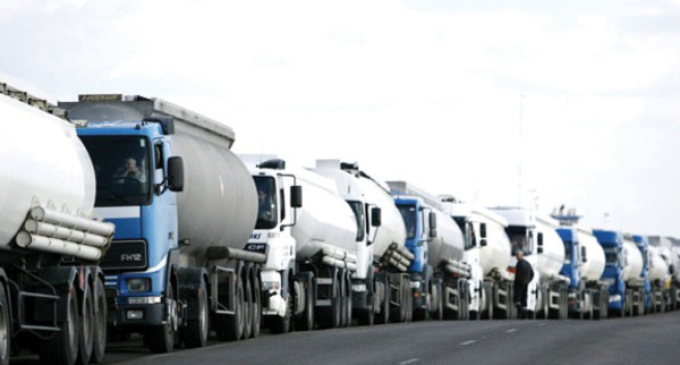The NNPC on Wednesday announced that it had allocated 600 trucks of petrol to Independent Petroleum Marketers Association of Nigeria (IPMAN), 500 trucks to major oil Markerters Association of Nigeria (MOMAN) and 400 trucks to its sales outlets to ensure adequate supply.
The Group Executive Director, Upstream, Mr Bello Rabiu, gave the breakdown while briefing State House Correspondents in Abuja.
He said “as you know, we have three segments of marketing fuel in Nigeria, we have IPMAN, the independent marketers, we have MOMAN, the major marketers and we also have NNPC-owned retail.
“We allocated them trucks on a daily basis to deliver to their own stations.
“Every day, NNPC retail will have 400 trucks, IPMAN, which is the independent marketers across the country are being given 600 trucks and MOMAN, the main marketers who are selling in major cities in the country are having 500 trucks.
“This is more than what we actually require but we are trying to ensure that everybody is satisfied.”
According to him, the Port Harcourt Refinery is delivering five million litres of petrol everyday (about 120 trucks), which is more than enough for Port Harcourt area and Bayelsa.
He said that the only way the organisation could import was through the use of foreign exchange.
He noted that oil sales had gone down by more than one-third from more than 100 Dollars per barrel to about 30 Dollars per barrel.
He attributed the scarcity of the product to the low cost of oil in the international market, noting that NNPC had devised three means of solving the foreign exchange problem.
He explained that the Corporation sold crude oil directly and got refined products, saying it had also connected its major marketers, the joint venture partners, who also sell directly and dedicated some money for their downstream companies.
Explaining further, the GED downstream, Mr Henry Obih, said that the Department of Petroleum Resources (DPR) had issued NNPC the right to import 79 per cent of petroleum in the first quarter of 2016 and 42 per cent in the second quarter.
He said that between IPMAN and MOMAN, the rest of the requirement for the market would be borne by the two groups.
“What we have done as a Corporation is to go beyond our core to not only cover our own share of the import requirement for second quarter but to also over-provide because it is clear that the reason for the situation we have today is because we had a breach in the supply chain.
“There was a time we could not meet the requirement and people panicked and started buying more than they usually buy.
“From our perspective, we usually plan based on consumption and once that increase happens, it is not easy for us to react as NNPC to cover that sudden increase in demand because we don’t have sufficient refining capacity in Nigeria.
“We therefore depend on foreign refineries for our demand.’’
Obih noted that the nation was now comfortable in supply because cargoes were lined up at sea to help overcome the situation.
“For next week, the outlook is to bring in eight cargoes just NNPC ourselves, excluding the imports from MOMAN and other importers.
“The week after, our projection is to have 12 cargoes on Nigerian waters to cover the supply and demand balance.’’
He also said that the NNPC was collaborating with other agencies to ensure that those with approvals to import would be able to bring in the cargoes on schedule, noting that “we are totally committed in getting out of the current situation and we are working to ensure that this does not happen any time soon and it does not happen in future.’’
He added that the Corporation was collaborating with other agencies to prevent diversion and secure pipelines.
He said crude oil was being moved up to Kaduna refinery, adding that through the pipelines, crude had also moved from Bonny Island to Port Harcourt without any loss.
He reaffirmed the warning by the Minister of State for Petroleum, Dr Ibe Kachikwu, to confiscate products being hoarded at filling stations and dispensing free to users.
According to him, any station caught a second time will have its licence seized and reallocated.
On the current state of refineries, the GED Refineries, Mr Anibor Kragha, said the key issue was addressing consistency of crude supply after which capacity utilisation would follow.
He said that the refineries had started to run with Port Harcourt delivering about five million litres a day, Warri delivering between two million and 2.5 million litres of petrol per day, while Kaduna refinery for the first time in so many years was receiving crude.
“What we are doing now is to raise money to high grade our facilities. We are looking at how we are going to get funding to get to capacity utilisation and when that happens, we will be able to deliver a significant quantum of products to the market.
“Our target for this year is at least t 75 per cent utilisation but first of all we need to secure the crude supply and get the crude consistently,’’ he said.(NAN)



Leave a Reply